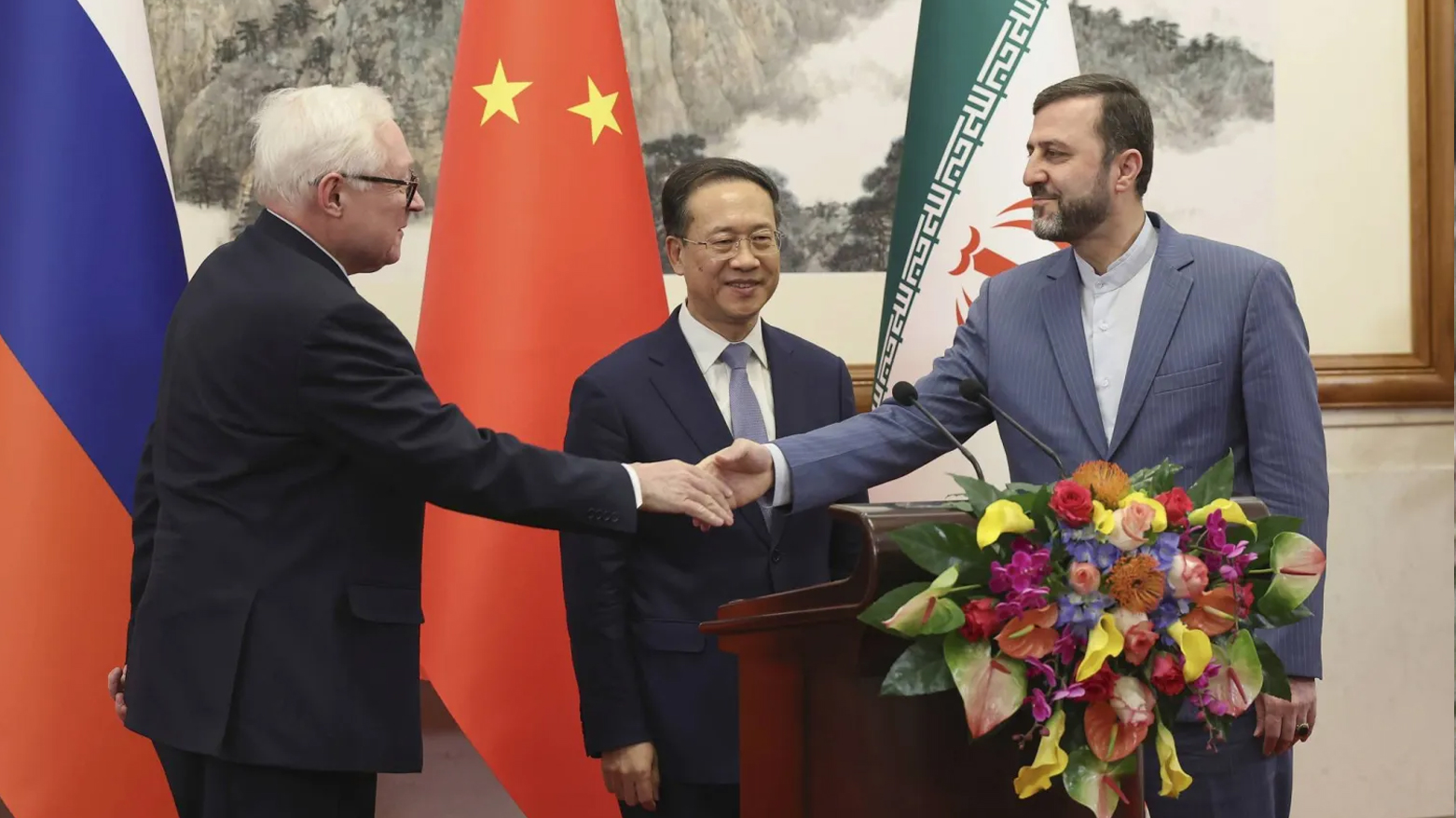Iran Engages China and Russia to Counter Potential European Activation of ‘Snapback’ Sanctions Mechanism
Iran coordinates with China & Russia to counter potential EU 'snapback' of UN sanctions before Oct 18 expiry. Rejects Europe's extension proposal, insists on ending mechanism. Vows to uphold nuclear rights amid IAEA inspection tensions.

ERBIL (Kurdistan24) – Iran's Deputy Foreign Minister for Legal and International Affairs, Kazem Gharibabadi, announced Tehran is coordinating closely with China and Russia in anticipation of a possible European attempt to activate the so-called “Snapback” mechanism, which would automatically reinstate UN sanctions on Iran before their scheduled expiration on October 18.
Speaking through National Security and Foreign Policy Committee spokesperson Ebrahim Rezaei, Gharibabadi emphasized that the European trio—France, Germany, and the United Kingdom—have forfeited their legal right to trigger the mechanism due to their own failure to meet obligations under the 2015 nuclear agreement.
The deputy foreign minister presented a detailed report to the Iranian Parliament following recent talks in Istanbul with counterparts from the European trio and the EU, addressing prospects for resuming negotiations. According to Gharibabadi, the European side proposed extending UN Security Council Resolution 2231 for an additional six months under specific conditions, a suggestion Iran rejected.
“We proposed that instead of extending Resolution 2231, negotiations should focus on ending the Snapback mechanism altogether,” Gharibabadi said. “The resolution must expire at its predetermined date. Decisions will be made based on our national interests and security.”
Firm stance against U.S. and Europe
Regarding the possibility of direct or indirect negotiations with Washington, Gharibabadi clarified there have been no recent developments and reiterated Iran’s consistent position: “The Iranian people’s rights—such as uranium enrichment, lifting of sanctions, compensation for damages, and rebuilding trust—must be respected.”
Rezaei added that committee members warned against stirring public fear over the Snapback mechanism. “The West and Europeans are not trustworthy. They’ve violated their own commitments,” he stated, while stressing Iran should prioritize its internal capabilities and strengthen ties with China and Russia.
Gharibabadi also reaffirmed Iran’s commitment to implementing the parliamentary law mandating suspension of cooperation with the International Atomic Energy Agency (IAEA). “This law is effective and binding,” he said.
However, these comments appeared to contradict remarks made by another deputy foreign minister, Saeed Khatibzadeh, who suggested on Saturday that IAEA inspectors would return to Tehran soon.
Speaking to Chinese broadcaster Phoenix, Khatibzadeh clarified that Parliament’s recent decision does not mandate severing ties with the IAEA. Rather, it places the Supreme National Security Council in charge of managing relations. “We’re implementing a new mechanism, but we have no intention of halting cooperation,” he said.
“Inspectors left voluntarily amid the conflict and attacks. They were not expelled,” Khatibzadeh noted, confirming their return in the coming weeks.
On the issue of reviving negotiations with the U.S., he added, “We are not in a hurry to enter any indirect talks or frameworks unless solid guarantees are provided for meaningful negotiations.”
Criticizing U.S. foreign policy, Khatibzadeh said, “The United States observes no red lines when it comes to attacking peaceful nuclear facilities in other nations. It must be taught a lesson—it cannot recklessly and brutally violate the sovereignty and territorial integrity of others.”
He concluded that “the future of the Middle East will not unfold as the Americans and Israelis envision.”
Uranium Enrichment and Oversight Questions Remain
When questioned about the fate of Iran’s 60% enriched uranium stockpile, Khatibzadeh declined to provide specific details, stating it was under IAEA oversight prior to the recent U.S. attacks.
Meanwhile, Iranian Foreign Minister Abbas Araghchi was quoted by a local newspaper responding to the Financial Times on the same matter. When asked about the stockpile’s current status, Araghchi bluntly replied, “I don’t know.”
